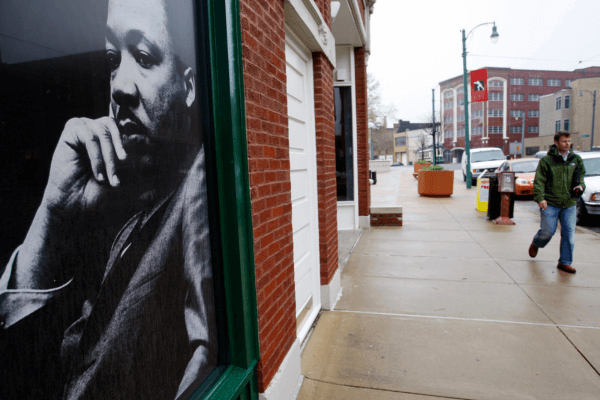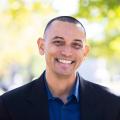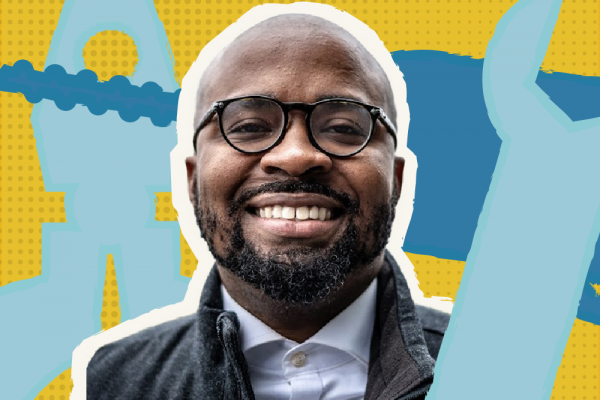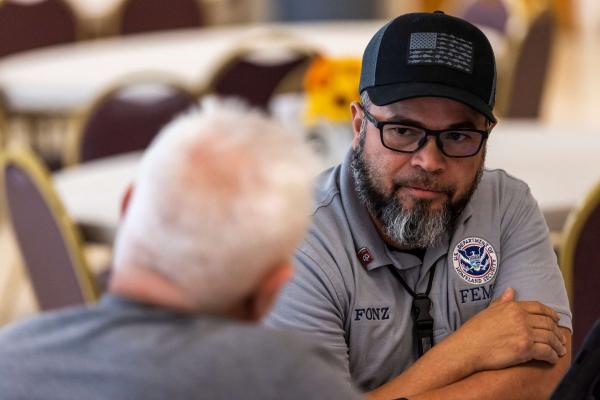No Christian leader has influenced my faith and activism as much as Rev. Martin Luther King Jr. — but the day we devote to his legacy often leaves me frustrated. There’s a bitter irony in a nation that takes a day off to celebrate King’s life and work while that same nation is experiencing a deep backlash against racial justice.
Much of this backlash, I believe, is the result of our nation’s rapidly diversifying racial demographics, which some have used to stoke racial anxiety and grievance. I see evidence of this backlash in the Supreme Court’s decision to end affirmative action in higher education, efforts to sanction teaching the full history of the United States, and attempts to rewrite recent history about what happened on Jan. 6, 2021.
One backlash story that’s felt especially personal is Claudine Gay’s resignation — after pressure from donors and right-wing activists — from her post as president of Harvard University. Gay, the first Black woman to serve as the university’s president, came under fire for her response during a congressional panel on antisemitism and for allegations that she was guilty of plagiarism in some of her scholarly writing. Yet despite Gay’s public apology for her remarks and her commitment to correct her scholarly work, the pressure campaign against her resulted in extensive coverage — and eventually became untenable.
As an alumni of Harvard’s Kennedy School of Government and a proud son of a mother who was the first Black woman to serve as vice president of student affairs at two major public universities, I know how much of a struggle it is for Black women to break professional barriers and the grueling standard to which those who do succeed are so often held. I was especially disturbed to see Gay’s ousting openly celebrated as a win against diversity, equity, and inclusion initiatives in higher education. Though opponents falsely caricature DEI as programs that give undue advantages to underqualified people, in reality, DEI programs increase opportunities for qualified people who have so often been overlooked or denied opportunities due to unconscious bias or structural injustice. These programs help organizations and corporations develop practices and build an organizational culture that enables everyone to thrive and succeed, including those who are often marginalized.
Yet on Martin Luther King Jr. Day, many of the same people who are leading the racial justice backlash are the same ones sharing King’s own words. One of the quotes I often see shared is the following 32-word excerpt from King’s most famous speech: “I have a dream that my four little children will one day live in a nation where they will not be judged by the color of their skin but by their character.”
In that speech, King calls on the nation to “make real the promises of democracy” and “make justice a reality for all of God’s children.” But for decades that quote has been ripped from its context and used instead to argue against structural change, including policies designed to fight racism and advance racial justice. Conservatives from former President Ronald Reagan to current U.S. House Speaker Mike Johnson have alluded to the quote to speak out against affirmative action.
Today, King’s words and legacy continue to be misappropriated. Media outlets and many churches often shy away from connecting King’s civil rights work to his broader work against poverty and militarism. Instead of noting how King saw racism, poverty, and U.S. imperialism as the “three giant triplets” that the U.S. must work to overcome, we portray a sanitized version of King who was only concerned about “the content of our character,” and not, say, structural oppression.
To make matters worse, many hijack King’s legacy to argue that we no longer need so many of the protections that King and others in the Civil Rights Movement fought for. The most stark and urgent example is around voting rights.
Last year, I had the honor of walking across the Edmund Pettus Bridge in Selma, Ala., the 1965 site of Bloody Sunday in which hundreds of voting rights activists were attacked by police and citizen vigilantes. My eyes welled up with tears as I recalled the sheer courage amid brutality. I met survivor Linda Blackmon Lowery, the youngest person to make the march from Selma to Montgomery, who challenged our group to finish what she and so many others started.
This election year, the most urgent and dire threat to King’s vision of the Beloved Community is the ongoing assault on our right to vote. As King understood, voting rights are essential to securing every other right; getting the Voting Rights Act of 1965 passed was the crowning achievement of the Civil Rights Movement. Yet since the Supreme Court conservative majority removed a key provision of the Voting Rights Act in 2013, we have seen a barrage of new voting restrictions and barriers put in place in more than 20 states. These restrictions are often passed under the pretense of ensuring election security, but they disproportionately harm Black and brown voters. Examples include restricting early voting and voting by mail, reducing polling sites, more stringent voter ID requirements, and purging voter rolls. Equally worrisome are election interference bills that have been proposed in many states and counties that require hand-counts, allow partisan actors to overturn election results, or impose new criminal or civil penalties on election officials.
These restrictions are sobering, but we fail to honor people like Lowery and King if we resign ourselves to hopelessness. So instead of feeling angry about those who take King’s quotes out of context, I invite you to use Jan. 15 to join the 2024 campaign kickoff for Faiths United to Save Democracy . Co-led by Sojourners, the Skinner Leadership Institute, and the Georgetown University Center on Faith Justice, this broad multi-faith and multiracial coalition brings together faith leaders and activists to protect voters in states where we have seen efforts to suppress the right to vote or subvert free and fair elections. Grounded in the belief that whenever anyone — of any race, age, background, or political persuasion — is denied their lawful right to vote, it dishonors the image of God that is embedded in each of us (Genesis 1:27-28). Throughout 2024, we’ll work to ensure voters are registered and know their rights; we’ll work to hold election officials accountable to conducting free, fair, and safe elections, and we will also train “poll chaplains” to be a moral presence at polling places during early voting and on Election Day.
And we’re not the only ones: Our campaign is just one of many aligned efforts focused on protecting democracy and the right to vote in what promises to be another tumultuous and high-stakes election.
So as we celebrate Martin Luther King Jr. Day, I invite you to join me in holy frustration: In a truly just society with a well-functioning multiracial democracy, these efforts would be wholly unnecessary. The fact that we need to do everything in our power to protect our democracy and the sacred right to vote is a reflection of the extreme polarization of our politics, the anti-democratic and authoritarian tactics and principles endorsed by far too many on the political Right, the persistence of structural racism, and the Supreme Court’s severe and repeated undermining of the very Voting Rights Act for which King and so many others fought, bled, and in some cases, died, to pass.
If we can ensure that democracy and voting rights are protected in 2024, we will need to wake up the day after the election, determined to push for the major legislation and other structural changes that will be needed to restore, protect, and ultimately transform our democracy into the kind of Beloved Community that King dreamed about: a nation where all are equally valued and everyone can thrive.
Got something to say about what you're reading? We value your feedback!







